Irrigation Comes to the Garden of 7 Gates
or “How Tapahpunjah didn’t let the drought of 2012 hold him back”
by Lilasuka dasi
Farmers talk a lot about the weather. But it’s not just small talk. Krsna sends weather that can make or break the success of a whole season’s worth of crops. Farmer and New Vrindaban resident Tapahpunjah Prabhu was very concerned about the droughts we experienced in New Vrindaban this summer.
Tapahpunjah Prabhu explains: “Many crops, such as carrots and beets, require continuity of moisture supply in order to grow properly. With the sporadic moisture of this past summer, many plants in the Garden of 7 Gates (G7G) became stressed, and suffered. Since a major goal of our gardeners this year is to boost the production capacity of the garden, as well as to regulate the pace of the crop growth no matter what the weather, irrigation has become a necessity.”
New Vrindaban’s “ECOV” Board has made the decision to sponsor a new irrigation system. ECOV, also known as “GITA”, is one of the two boards that govern the New Vrindaban community and it consists of five members and two advisors, who meet twice a month. ECOV deals with projects related to the cows and the agricultural land in NV, so they hired a very successful local farmer, Andy Reed, to design and install the irrigation system at the G7G.
Andy explains: “The irrigation system consists of one 500’ main trunk extending from one end of the field to the other. From the main branch, at regular intervals, there are a total of 1400’ of sub branch lines going out to the beds.
The water will come in to the G7G to this main branch that I’m digging right now, and then there will be either drip type or sprinkler type lines extended out to each bed.”
Our garden at New Vrindaban produces not only vegetables and berries, but also beautiful flowers for the Deities. The G7G covers six acres. It is the biggest sustainable garden involved in the “Green Wheeling Initiative,” an organization created by Tapahpunjah prabhu to make people in our local area of Wheeling aware of the value of fresh fruits and vegetables for nutrition as well as to educate the neighbors about the relationship between food and karma.
This year’s harvest from the G7G included: about 60 bushels of tomatoes, 85 boxes of chard, 25 bushels of cucumbers, 17 bushels of okra, 60 bushels of bell peppers, 12 bushels of jalapenos, 65 bushels of zucchini, 5 bushels of bitter melon, 40 bushels of butternut squash, 20 bushels of pumpkin, 20 boxes of mustard greens and a lot of green beans.
In the Bhagavad Gita [10.35], Lord Krsna promises: “I am flower-bearing spring.” When the irrigation system is in place by next spring, our garden will produce much more. To help towards this goal, we are researching how to boost the soil fertility levels.
The future of Krsna’s garden is bright.
Tapahpunjah exclaims: “The G7G is a flat field. This is rarely to be found in these hills of WV, so this was a very popular field in the past. As a result, it was often overplanted, and also suffered from poor farming practices. We have taken 12 years to get the fertility back to the level at which it is today and we are still improving it.”
We offer our thanks to the ECOV board, and to Tapahpunjah and Andy and his crew for helping to bring life-sustaining water to Krishna’s garden.
How our Elephant Grew
Here is a picture of the big concrete elephant that sits on guard at the entrance to New Vrindaban, when he was first being built back in the 1990’s (?).
Appreciation Dinner for the Cow and Agriculture Department Devotees
All New Vrindavan devotees are invited to the Temple Prasadam Hall this Friday, October 26, 2012 at 5:30 pm for an Pizza/Donut/Pumpkin Pie Style Appreciation Dinner for the Cow and Agriculture Department Devotees and especially the Apprentices who have done a fantastic service this summer in the gardens and in our Local Community Outreach program in Wheeling!
P.S There will be a couple of special vegan pizzas for our Vegan dieters!
Schedule:
5:30 pm Appreciations by Community President and Department Heads
6:00 pm Prasadam
7:00 pm Arotika/Kirtan
Water Water Everywhere…
by Lilasuka dasi
When you visit New Vrindaban, or if you live here, you don’t have to buy or bring any bottled water, folks.
No more plastic jugs plugging up landfills on our sacred Mother Bhumi Earth.
There are now three super efficient water filters installed at the temple, available for use by all.
They are Elkay Brand, antibacterial, activated charcoal filters. One is the front lobby water fountain, the 2nd is a special tap at the prasadam room sink and the 3rd is a white hose in the devotee kitchen.
Just bring your favorite container and please help yourselves!
Ghee Wicks for Lord Damodara
Only 2 weeks until Kartika/ Damodara-vrata!
Lord Damodara wants YOU
To help make Ghee Wicks now, in preparation for the month of Kartika/Damodara-vrata!
We will need at least 1500 special ghee wicks made, for all the devotees to offer to Lord Damodara for the month of Kartika, to be ready for use from Fri. Oct. 29 until the end of Damodara-vrata, Tues. Nov. 27.
Please see Vrindavan Pallika dasi at the garland-making table at the back of the temple, esp. during morning program every day, who will train you how to make perfect little special ghee wicks with toothpicks and cotton.
LORD DAMODARA KI JAYA!
Monday Escape to the Palace of Gold
by Jen at Liberty Images
“The Palace has a truly spectacular rose collection that rosarians and garden lovers are rightly enamoured with; as a rose lover myself, I was agog at sheer volume of rose varieties. The Palace of Gold is about 30 minutes away from Wheeling; if you’re in the area, I highly recommend stopping by (particularly during spring, summer, and fall).”
For the whole article, please click on her link below:
Four Poems
Four Poems
by Arnold Smith
Compassion
Jaya Prabhupada
Higher than the sun in sky
Compassion rises
**
Devotion
Caitanya Prabhu
Hear the divine devotee
Chant Hare Krishna
**
Love
Jaya Hanuman
Adores Sri Rama over all
Rips chest asunder
**
Salvation
Bhaktivedanta
Lord Krishna shines through your
words
Salvation for all
The Vision for Housing for the ECOV Madhuban Project
The Basics:
The goal of the proposal is to outline some of the basics for developing five (5) building units at the ECOV site that would attract a young small family plus single females and males. A secondary goal is to use the construction of the first 200 square foot building to provide training on alternative building techniques for devotees and interested community members.
(1) Starter house – possibly 200 square feet
(2) Single family homes – around 1,000 square feet each
(1) Small building for female residents – square feet to be decided
(1) Small building for male residents – square feet to be decided
People applying to live in the different residences would need to provide the following:
-A proven willingness in being involved with food production and horticulture
-A commitment to the fruit bearing portions of the property to develop a market for this highly valued food
-A commitment to creating and maintaining a community garden
-The common goal for the community – to produce more then they consume
-Utilize composting as a way to re-generate soil for planting seedlings
-Recycle, reuse, re-purpose whenever possible
THE HOUSING PLAN:
The buildings would be attached to a common Photo Voltaic system that would provide electricity. Each house would have a 5,000 gallon cistern made of rammed-earth tires that would collect water from the roof of the building. There would be an in-house grey water system that incorporates a green house and an outdoor black water treatment system.
The houses would each be built out of re-used materials (80%) and could include rammed-earth tires, straw bales, cord wood, and bottle walls. Their design will incorporate the concepts of passive solar and thermal mass, utilizing the hillside as part of the building’s thermal mass whenever possible. There would be a small green house built into the south side of the building.
Another possibility would be to create a heat sink under the green house to assist in providing heating to the building. There are a variety of ways this could be done including incorporating solar thermal panels to heat the sand.
There was also some discussion about a community building that would sit down the hill from the housing and this could be used for socializing and other meetings. It could also house a laundry area and a small kitchen to be used for canning and preparing foods for meetings.
THE PROCESS:
1. Research government regulations – wetland, composting toilets
2. Build the road to the house sites and create lanes to each house site.
3. Utilize the services of an architect to create drawings to be used in construction and raising money for the project.
4. Utilize the services of a renewable energy designer/installer to create efficient systems for the units.
5. Create an overall picture of the entire project and outline a time line for completion.
6. Set a time line for teaching a workshop through Blue Rock Station that will kick start the construction of the first small building to begin in April, 2013.
7. Decide on who will supervise the overall project to completion.
8. Set dates for an additional workshop through Blue Rock Station that will teach earth plastering and other finish details for the building.
9. Obtain contracts with the companies providing products and/or services.
10. Create news releases and information for the community website to promote interest in the project and possibilities for donor contributions.
11. Create a time line for all phases of construction.
12. Hold a celebration to show the new building and increase interest in the next phase of construction.
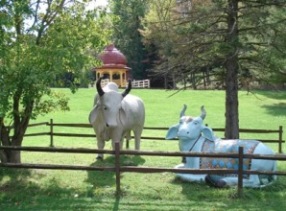
Welcome to Brijabasi Spirit
Thank you for taking the time to visit the New Vrindaban community blog. Think of visiting our blog as making a virtual pilgrimage.
Hare Krishna Hare KrishnaKrishna Krishna Hare Hare
Hare Rama Hare Rama
Rama Rama Hare Hare
"May cows stay in front of me; may cows stay behind me; may cows stay on both sides of me. May I always reside in the midst of cows."
Hari Bhakti-vilas 16.252
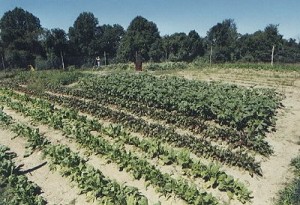
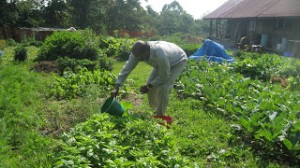
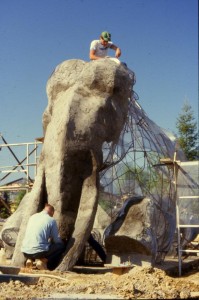

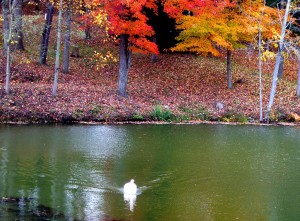

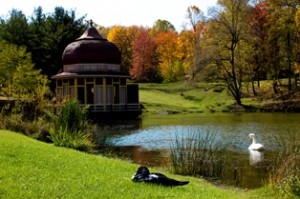




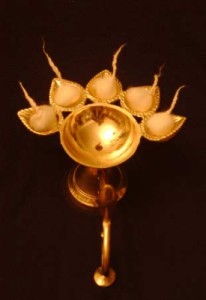





Recent Comments